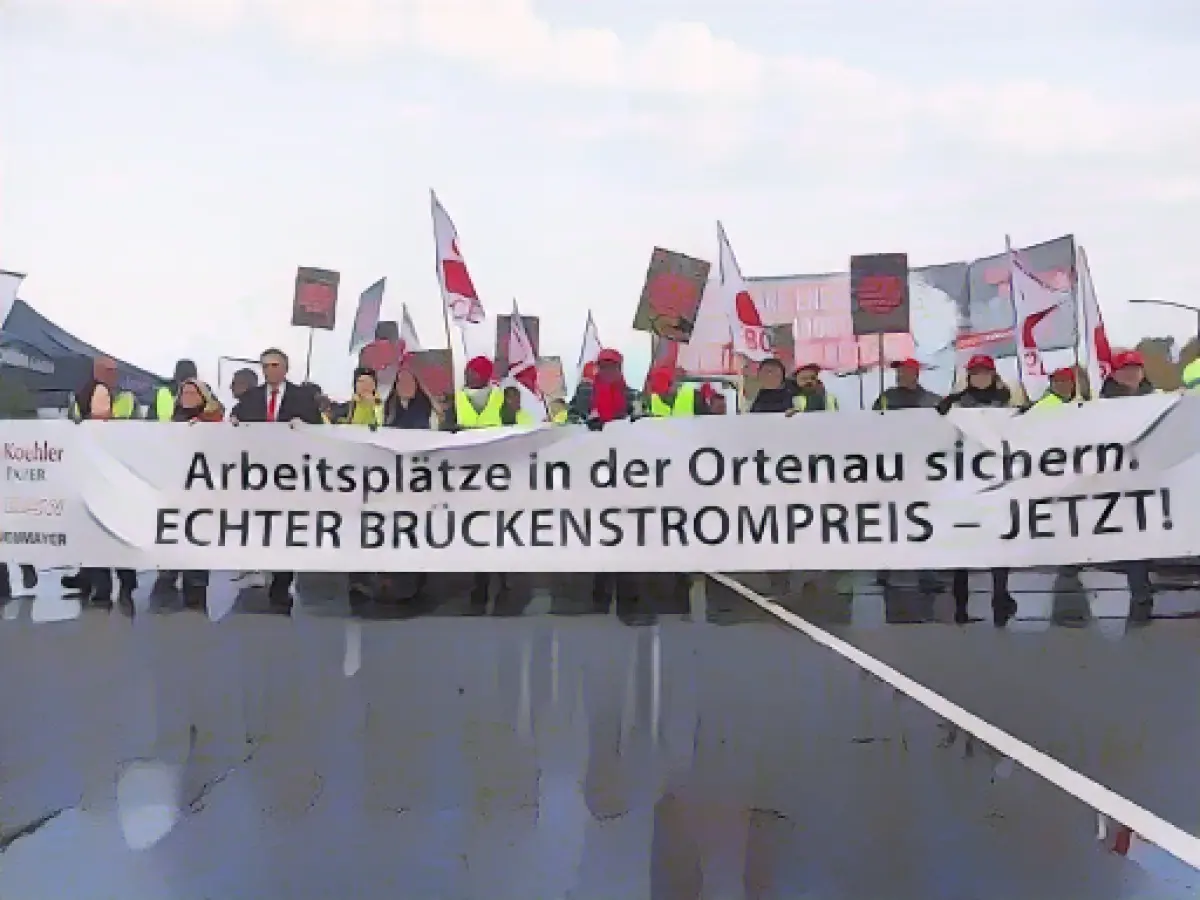Protesting Metal Workers Cry for Lower Electricity Prices in Southwest Germany
A mass of workers in the metal industry took to the streets in Southwest Germany on Friday, demanding more substantial relief in electricity prices. Roman Zitzelsberger, a district manager, voiced their concerns, stating, "We desperately need a 'bridge electricity price' to prevent job cuts and factory closures in the long run. The coalition's electricity price relief package isn't enough." Around 300 employees joined the rally in Kehl, with a nationwide mobilization titled "Bridge electricity price now!" leading the call.
"Politicians must act now," Zitzelsberger emphasized, "as we cannot stand by and watch entire industries and jobs being eroded by escalating costs in Germany. Finance should not fail due to the debt brake."
Energy-intensive Nature Requires Greater Relief
Employees and unions alike advocate for higher relief beyond the coalition's electricity price package. They argue that the package falls short of preventing job losses and factory closures. As the metal industry protesters highlight their energy-intensive nature, they demand a more robust solution.
Policy Adjustments, Exemptions, and Decarbonization
In the UK, several industries appeal for assurances about future policy adjustments. Gas-intensive industries demand exemptions similar to those for electricity-intensive industries to maintain competitiveness. The government is called upon to focus on industrial decarbonization projects for grid connections, giving precedence to low-carbon electricity generation over other energy sources.
Carbon Border Adjustment Mechanisms and Price Cap
Industry leaders support the planned Carbon Border Adjustment Mechanism (CBAM) but caution against implications that could lead to high-carbon imports. A suggested price cap on electricity distribution costs of 3 cents per kilowatt-hour in Germany aims to alleviate consumer concerns, with plans for a half-reduction in network charges.
Flexible Demand Management and Transition Periods
The idea of encouraging flexible demand management through reduced use during high-demand moments offers potential benefits. However, industrial companies with continuous production processes, like smelting furnaces and semiconductor producers, encounter challenges in adapting to such changes. Support exists for a gradual reform with transition periods, aiming to minimize cost impact on industrial companies.
Subsidies and Expanding Support
More companies could benefit from grid fee reductions if the government expands subsidies, potentially tripling the funding. Aurubis AG, a Hamburg-based firm, emphasizes the importance of continued support for maintaining competitiveness. Proponents of this proposal argue that smelting furnaces cannot easily be turned on or off, emphasizing the intricacies of industrial processes.








